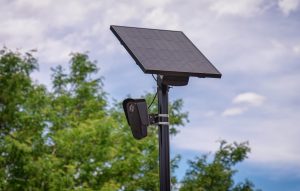From Slavery to Freedom: The Journey of Shanmugam Veeran
By Brandon Jones – Brandon’s Backroads
KEYSTONE, SD — In a quiet corner of the Black Hills, far from the villages of southern India, I sat down with a man whose journey across continents is rivaled only by the transformation he’s seen in himself—and in thousands of others. His name is Shanmugam Veeran, and his story is one of generational bondage, bold faith, and grassroots revolution.
Born in Tamil Nadu, a state in the southern tip of India, Shanmugam came from a village with no electricity, no running water, and no school—at least not at first. “We studied under trees,” he recalls. “We’d write in the dirt with sticks.”
His family was part of the Dalit community, often labeled “untouchables” in India’s complex caste system—a social hierarchy rooted in Hinduism that still quietly governs life in much of rural India, despite constitutional guarantees of equality.
“My parents were literally slaves,” Shanmugam says. “Our people worked for landlords for the equivalent of just a few dollars a year. Sometimes they’d pledge their children—sons—as laborers to pay off debts.”
What separated Shanmugam from the generations before him was a fierce curiosity—and eventually, a New Testament.
When a missionary pastor came to his village and began teaching about Jesus, literacy, and self-worth, Shanmugam took notice. “He was like Jesus to me,” he says. “He taught us to read, to bathe, to dream. I was twelve when I read the New Testament for the first time. It answered every question I had about why we lived the way we did.”
But that awakening came with a price. At age fourteen, his parents disowned him for converting to Christianity. “They performed a ritual where they sprinkled water on me and cast me out,” he says. “They told me I was no longer their son.”
Still, he stayed. He served them, honored them, and—over time—won them over. “Eventually, I baptized them both,” he says with a smile.
Shanmugam’s story doesn’t end there. Over the past three decades, he’s traveled village to village across India, offering education, counseling, and gospel ministry to Dalit and tribal communities. He’s been beaten, threatened, falsely accused, and even run out of towns in the middle of the night. Once, he had to escape with his wife after a village council ordered them to leave within hours—or else.
And yet he returns, again and again. “They may see me as a divider,” he says, “but I’m bringing dignity, equality, and peace.”
Shanmugam now oversees more than 30 house churches and leads a team of 60 local leaders. Through partnerships with organizations like the Keystone Project in South Dakota, he trains missionaries and multiplies leaders across India, Nepal, Sri Lanka, and Southeast Asia.
His marriage is its own testimony. “My father-in-law tried to give my wife away in exchange for a liquor drinking abuser of a man,” he recalls. “I rescued her. We married, and years later—I baptized him too.”
The gospel, he says, set him free—not just spiritually, but socially, mentally, and emotionally. “Without Jesus, I might have become a violent revolutionary. But now I help others find freedom without hate.”
Today, Shanmugam continues to visit Keystone twice a year as part of his leadership development work. He’s also raising support for his growing ministry, which operates mostly on donations.
“Whether you’re from India or South Dakota,” he says, “we’re all just people. Same needs, same struggles, same hope.”
Watch the full interview on YouTube at Brandon Back Road





